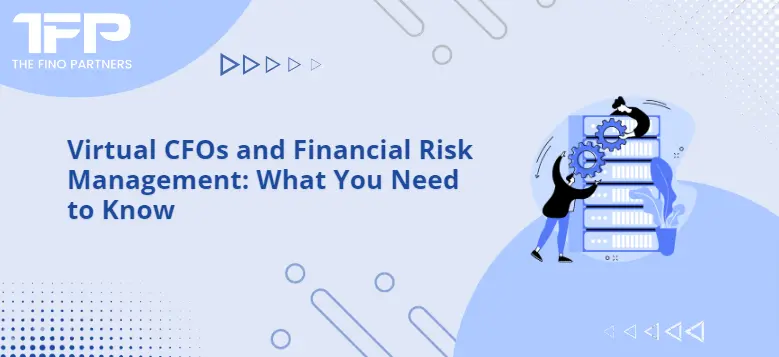There are many risks to financing US business. A virtual CFO provides expert financial guidance and support on a demand basis or as a retainer. The services act as a game changer in many situations. They protect your business's finances. Entrepreneurs who are skeptical of virtual CFOs or just curious about the idea will find their concerns labelled in this article. The following article outlines some significant risks of US business. It also explains how a virtual CFO is helpful in risk mitigation strategies.
Risks to US Businesses
A US business operates in a dynamic environment. Thus, it is exposed to different risks. There are some primary parts of business risks. It involves:
1. IT Risks
Every company has to be technologically viable. With technology comes IT risk—for example, data breaches, hardware or software issues, virus (cyber) attacks, etc.
2. Extra Risks
Risks involve risks that might or might not solely relate to the business. It involves sudden changes in geopolitics, physical environment risks, competitor risks, etc.
3. Economic Risks
The main risk for any business is in its economy. Any mistake can lead to money loss. This is because of micro economic or macroeconomic factors. Examples involve changes in interest rates, defaults on borrowings, penalties for non-compliance, etc.
4. Operational Risks
Operational risks involve loss because of the company's internal inefficiencies, mistakes, or delayed processes. Examples include loss because of default services, poor customer service, personnel in competencies, etc.
Virtual CFOs: How They Mitigate Risk?
Virtual CFOs mitigate business risks in many ways. It involves:
1. Understanding of trends & challenges
Virtual CFOs mitigate risks by having a deep and thorough understanding of trends and challenges. This understanding is gained through their extensive experience working with different businesses in various industries, making them well-informed and knowledgeable. For instance, a virtual CFO might simultaneously work for a service- and product-based company. Thus, they can adapt their working style to the ongoing trends and challenges.
2. Identify risk
Virtual CFOs stay prepared for expected and unexpected situations. Their wide range of experience and expertise allows them to quickly identify the risks, their potential, and the possibility of their happening. This reassures the business and instill confidence in the management. They mark them on crucial software applications by analyzing the essential parts of risk. Thus, they can be on their toes whenever risk arises.
3. Analysis of risk
The virtual CFOs then analyze the risks through some strategic exercises. It involves risk-intelligent strategy, analytical approach, use of data, etc. They execute a thorough assessment of the depth of risk. This shows its future and present impact on the company. They also map out the upside of risks too. This helps to show their adverse effects. It allows the company to have some leverage over any opportunity that might show up.
4. Mitigate risk
The virtual CFOs have the risk mitigation plan ready in advance. It is based on the analysis of risks. Risk management is an action according to which examined actions are taken to minimize the loss from the risk. The virtual CFOs ensure clear response procedures. These procedures are laid down and followed without any delay. After all, they ensure insurance against risk losses is in place.
5. Connecting risk management and strategic planning processes
Virtual CFOs involve risk management strategies in the business-planning. Thus, they interlink risk management with the strategic planning task. They ensure that the business considers present and emerging risks very early. After all, a virtual CFO works closely with the top administration. It is not reactive to risks. However, it is proactive in response to possible upcoming threats. This proactive approach ensures that the business is always prepared and secure.
6. Use risk analytics to inform strategic decisions & Investments.
Virtual CFOs use risk analytics to inform strategic decisions and investments. They present the information based on anticipated results, risks, and analytics to the top administration. So, the risk is considered suitable from the beginning and can be handled more strategically, planned, and controlled. A virtual CFO conducts risk-adjusted valuation methods, 'what-if' stress tests, etc. It will be done before the finalization of the decisions so that any potential risk can come to the forefront.
Read Also:- How a Virtual CFO Can Improve Cash Flow Management for Small Businesses
End Note
Virtual CFOs help move companies toward prosperity. Their cooperation aids US business development, enabling them to surmount obstacles and emerge as formidable contenders in the industry. After all, risks are part and parcel of a business, and so should risk management. They create your company to handle any upcoming disruptions. It also enables us to turn them into opportunities. We at Fino Partners help businesses handle their economic needs through our expert team of virtual CFOs. Our virtual CFOs will give insights into the numbers by establishing financial infrastructure, MIS reporting, etc. It also involves budgeting, compliance, risk management, cash flow management, etc. So that your business always remains ready to face any obstruction.




























